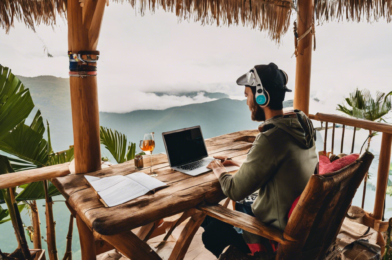Volunteering abroad is an increasingly popular way to travel, offering immersive cultural experiences and the chance to make a positive impact. For those seeking to broaden their horizons and gain valuable life skills, volunteering overseas can be a rewarding and affordable option. In this article, we explore the benefits of international volunteer work and highlight some organizations that can help you get started on your journey.
One of the biggest advantages of volunteering abroad is the opportunity for cultural immersion. By working and living within local communities, volunteers gain a deeper understanding of the country and its people. This can include learning a new language, participating in traditional customs and ceremonies, and gaining insight into the daily lives and challenges faced by locals. Such immersive experiences foster a greater appreciation for different ways of life and can lead to lifelong friendships and connections.
Volunteering overseas also allows individuals to develop valuable personal and professional skills. From communication and teamwork to problem-solving and adaptability, these experiences provide a unique platform for growth and self-discovery. Volunteers often find themselves in challenging situations, requiring them to step out of their comfort zones and develop resilience and resourcefulness. These skills are not only beneficial for personal development but are also highly valued by employers, setting individuals apart in an increasingly competitive job market.
The impact of volunteering extends beyond the individual, as it provides an opportunity to contribute to meaningful projects and support local communities. Whether it’s teaching English to students in rural areas, supporting women’s empowerment initiatives, or contributing to environmental conservation efforts, volunteers can make a tangible difference. These experiences allow individuals to gain a deeper understanding of global issues and develop a sense of social responsibility, fostering a more informed and engaged global citizenry.
For those concerned about the costs associated with volunteering internationally, there are a multitude of affordable programs and opportunities available. Many organizations offer volunteer placements with minimal fees, covering only basic expenses such as accommodation and local transportation. Additionally, scholarship and funding opportunities are often available, ensuring that financial constraints do not hinder individuals from having these valuable experiences. Volunteering can also be a more financially viable option than traditional travel, as accommodations and meals are typically included in the program fees.
When considering volunteer opportunities, it is essential to research and choose reputable organizations that prioritize ethical and responsible practices. Organizations such as the United Nations Volunteers (UNV) and International Volunteer HQ (IVHQ) offer a wide range of placements in communities across the globe, focusing on sustainable development and cultural exchange. These organizations ensure that volunteers are properly supported throughout their journey and that the projects have a positive and lasting impact on the local communities.
Another reputable organization, Volunteer Forever, connects volunteers with meaningful opportunities worldwide. With a focus on affordability and transparency, they offer a platform for individuals to discover and apply for volunteer programs that align with their interests and values. Their website provides comprehensive resources and reviews, ensuring that volunteers can make informed decisions about their chosen programs.
For those seeking a unique and affordable travel experience, volunteering abroad offers an unparalleled opportunity. Through cultural immersion, skill development, and contributing to local communities, individuals can gain invaluable perspectives and make a positive impact. With a variety of reputable organizations offering placements worldwide, it is now easier than ever to embark on a life-changing volunteer journey. So, if you’re contemplating your next adventure, consider volunteering abroad and embark on a journey that will leave a lasting impact on both yourself and the communities you engage with.
Remember to approach this experience with an open mind and a willingness to learn and adapt to new cultures and environments. By embracing the unknown and stepping out of your comfort zone, you will create unforgettable memories and form deep connections with people from all walks of life. Safe and fulfilling travels on your volunteering journey!









